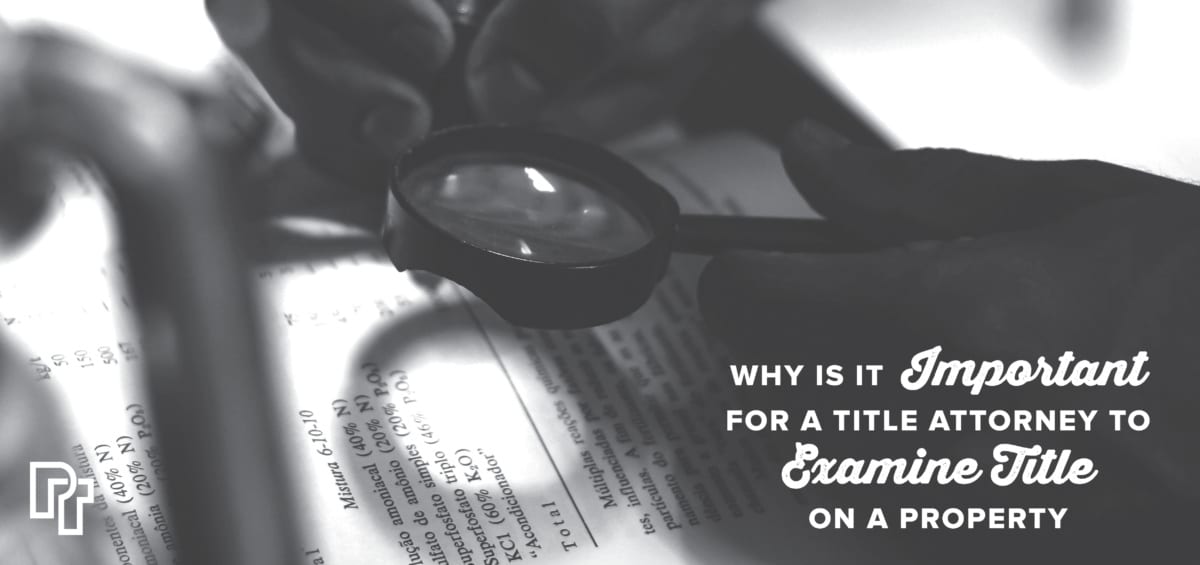A title examination is one of the most important aspects of buying and selling real estate because it flags issues that could potentially derail a sale, such as competing claims of ownership or outstanding debts associated with a property that is for sale. Title attorneys examine the title on property to assure both the buyers and the sellers that the property being purchased is actually suitable for sale.
What is a Title Examination?
The first thing to understand is that a title examination is not the same thing as a title search, but they are connected and both are necessary for a real estate transaction. A title search is the review of public records, such as wills, deeds, and certificates of death, that affect the title of the property in the transaction. The search is necessary to determine that the person or entity selling the property has the legal right to sell it, and that the buyer is getting the property rights they are paying for.
A title search results in a chain of title that shows the history of title ownership from the present owner back to the original owner.
Once the chain of title is established, the title attorney will then examine the title to make sure that it has passed correctly to each new owner. This is key to determining if the seller has the right to sell if and if the buyer will legally own it post-sale.
In the examination, the attorney will
- look for encumbrances, such as unpaid tax liens or other restrictions that have been placed on the property at some time during its history;
- verify if all prior mortgages, judgements and other liens against the property have been paid in full; and
- identify any exceptions to the title, such as rights of first refusal, servitudes or restrictions.
In doing so, the attorney is assessing whether the ownership can be tied to anyone other than the buyer and seller associated with the most current transaction.
Why is the Examination Important?
Title examinations by professional title attorneys are necessary to avoid the catastrophic issues brought about with defective title. Defective title is also referred to as clouded title because it makes it difficult to see who is the actual owner of the property. It can lead to confusion and the title being declared invalid. If the issues triggering defective title are not identified prior to the sale, there can be serious ramifications for the buyer, including the legal loss of the property.
That’s why the title examination needs to happen prior to the sale. If any defects are found, they can be resolved before the transaction. Or, if they cannot be, either party can walk away from the sale.
To avoid potential complications that could seriously impact both the buyer and the seller, be sure to insist on having a title examination done in the first steps of the transaction.







